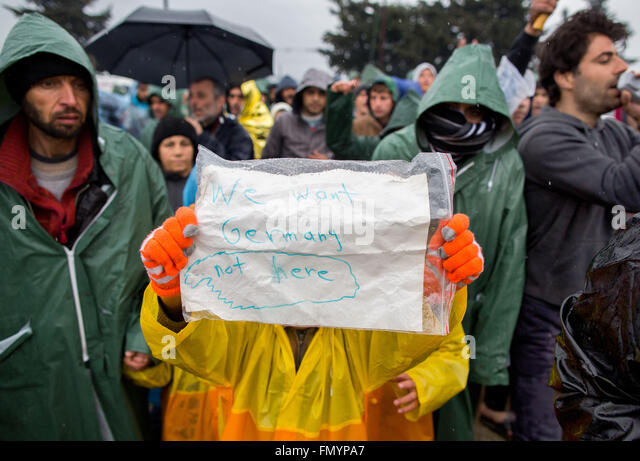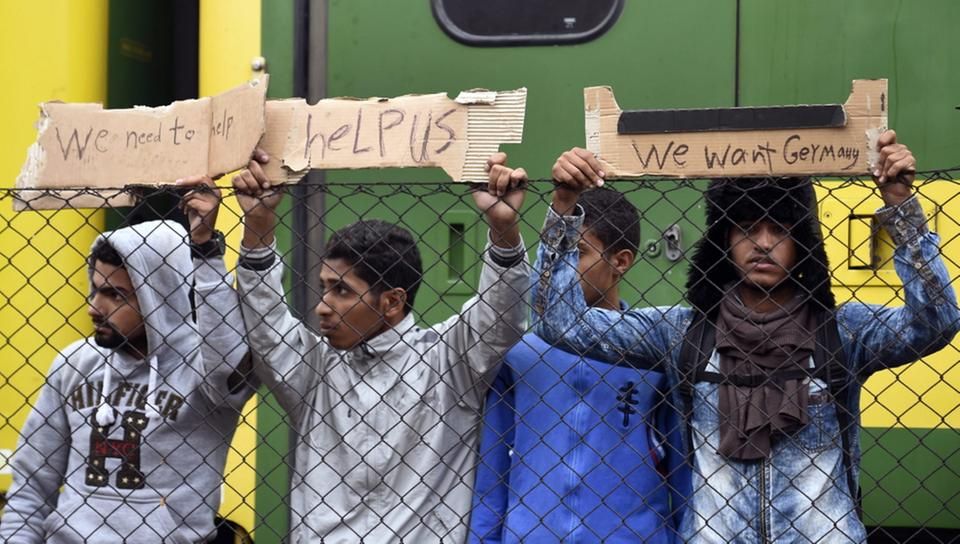Speaking of Italy, here is an article about what is going on in that country, which has an unemployment rate of 11% and doesn't need economic migrants.
Italy's homeless, jobless migrants shunned by politicians
The plight of the hundreds of thousands of migrants struggling to build a life in Italy is rarely discussed by most political parties, even though immigration is one of the hottest issues ahead of national elections on March 4.
Keen to harness a growing backlash against more than 600,000 migrants who have landed on Italian shores in the past four years, the parties are instead promising tough measures such as mass deportations or halting immigration altogether.
With poor Italians also struggling to find housing and jobs in an anemic economy, offering support to migrants such as those in the Olympic village is not considered a vote winner.
600k illegal migrants and more than 100k landed in Italy just last year. Of course, many of the arrivals seek more generous benefits in countries like France, Germany and Sweden, and do not stay in Italy.
"This place is the epitome of Italy's failure to integrate," said Nicolo' Vasile, a 31-year-old engineer from Sicily who spends an average of 40 hours a week helping residents, including 40 families and 50 children, with maintenance, paperwork and other tasks.
"There is no institutional path to integration. It simply doesn't exist, unlike elsewhere in Europe," said Vasile, one of 20 local volunteers, from students to pensioners to professors, who help those stuck in the Turin complex.
1. If they don't work anyway they have nothing but time one their hands. Why aren't they doing maintenance and "other tasks" for themselves and each other?
2. The illegal migrants should be sent back, not integrated, as that encourages them to stay permanently.
The ruling center-left Democratic Party (PD) tried to take the sting out of the migration debate last year by striking deals with the Tripoli government and coast guard aimed at preventing migrants from boarding boats for Europe.
As a result, the number of migrants arriving in Italy by sea fell by a third last year to 119,000, but this has failed to quell the fears of ordinary Italians.
Of course, 119k in a single year is still a huge number.
Greece, another country on the immigration frontline, offers even less than Italy, but those who reach European Union countries such as Germany and Sweden get more support because refugee status gives them access to robust welfare systems.
While Italy's migrant budget was 4.3 billion euros ($5.3 billion) last year, Germany's federal government spent 13.6 billion euros to accommodate and process asylum seekers, two years after more than a million refugees crossed its borders.Germany's 16 state governments spent billions more. In 2016, the states spent about 23 billion euros though exact figures for last year are not yet available.
Mass migration is very expensive.
Jamal Adam, 31, from the Darfur region of Sudan arrived in Italy in 2011. Unable to find a job he went to Germany, but returned because the EU asylum rules prevented him from getting legal papers in any country other than Italy.
"In Germany, they give you money and a place to stay and you rest easy," he said in the Olympic village in Turin as daily prayers from Mecca echoed out of a TV. "Here you get nothing."
Free money and "resting easy" was the goal of the whole exercise. That's why all these migrants want to make it to a country like Germany or Sweden, because they can get a lot of taxpayer-financed benefits there. Hence the slogan, "we want Germany".
Note also that Jamal watches Islamic prayer broadcasts on TV. Italian TV is playing prayers from Mecca on a daily basis now?
Unsatisfied with the level of free services provided for them in Italy, the migrants are invading France through the Alps, like Hannibal invaded Rome, only sans elephants.
Migrants risk death crossing Alps to reach France
Reuters said:
It took Abdullhai almost three years to get from his home in Guinea to a rocky, snow-covered Alpine mountain pass in the dead of winter, for what he hopes will be the final stage of his journey into France.
No war in Guinea either.
The terrain is steep and dangerous and he and a group of five other migrants face risks ranging from losing their footing on steep drops, being struck by falling rocks or succumbing to the -9C (15°F) temperatures in clothing ill-suited to the terrain.Abdullhai, 38, is one of hundreds of migrants who over the last year have attempted to cross from Italy into France through high mountain passes, in a bid to evade increased border security put in place at easier crossing points. His group crossed into France in December.
Should've stayed home then. I hope Macron deports the lot of them.
In Guinea, he left behind his wife and three children, including a two-year old son whom he has never seen.
“Our life in Guinea is not good,” said Abdullhai, 38, who like his friends asked that his last name not be published in this story.“There is no work there and no future for my children. Here in Europe we can have a future. We can find work and live a life with some dignity. This is worth a try for me.”
He confirms himself that he is an economic migrant. No word about fleeing violence, or being persecuted or anything of the sort, he only talks about economic prospects. Of course, if he gets established in France, he'll seek to move his entire family there, as will others, multiplying the total number of migrants several times over. The 119k who landed in Italy last year mostly also have families they will seek to bring to Europe too.
“I was imprisoned and tortured in Libya for many months. I was forced to work for free. Just look at my scars,” said Kamarra, 28, from Guinea, lifting his shirt and pulling down his trousers at the side to show marks on his body and hip.
And because of that he should be allowed to immigrate into Europe? No. He should be sent home to Guinea.




